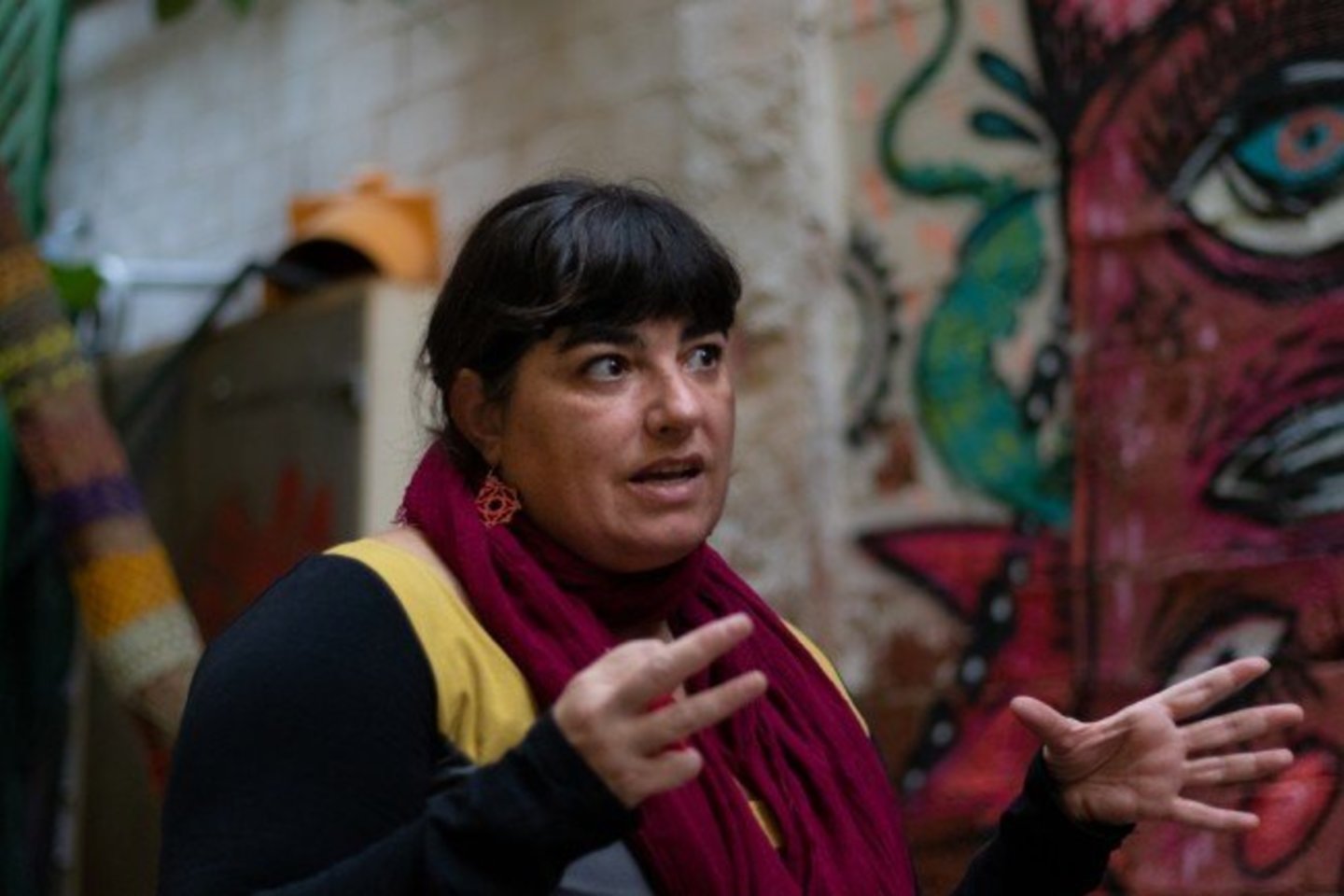But there are other ways to do things, argue certain civil society actors. These require a 180-degree change of course in the way things are done financially and politically.
This article has been prepared by the Lithuanian Development Cooperation Platform.
In a debt swamp
With millions of Euros and US dollars currently outpouring from Ukraine’s treasury to service its government’s foreign debt repayments, the age-old issue of debt relief is making a reappearance in this context, too, as it has with, for example, the Jubilee 2000 campaign more than two decades ago. It includes, among others, the questions of unjust and/or unsustainable debt and also the legitimacy of financial and political dictates to sovereign states by major lenders, such as the International Monetary Fund (IMF) and World Bank.
So how much exactly have the recent governments of Ukraine borrowed on behalf of the people of Ukraine? Data varies depending on source. According to the UK’s leading NGO focusing on global debt, Jubilee Debt Campaign, Ukraine’s total external government debt currently stands at $54.3bn, while World Bank puts it at almost $130bn. The latter amounts to almost 80% of Ukraine’s GDP.
Either way, that is a lot of money that the people of Ukraine are expected to pay „back“, whatever the circumstances.
Loan sharks
Despite its loud slogans of „freedom“ and „democracy“, the EU too has played a major role in Ukraine’s debt crisis. Most recently, on 21 February 2022, the Council of the EU announced „an emergency macro-financial assistance operation of €1.2 billion in the form of loans“, but it comes with (tight) strings attached. The two disbursements, to be released over the course of 12 months, are subject to „satisfactory implementation of the IMF programme“.
Why the EU would provide loans to its neighbouring country only under the IMF’s conditions, when the two are, supposedly, independent, is not explained. Especially taking into account the fact that international institutions such as the IMF are unelected and highly unaccountable.
Over the last eight years the EU had provided Ukraine with such „macro-financial assistance operations“ as the one mentioned above that are worth €5 billion, among other financial deals. According to Eurodad – the European Network on Debt and Development, apart from the EU itself, major bilateral creditors to Ukraine include Germany, France, and Poland, as well as the European Investment Bank and other EU institutions.
The United States of America are also deeply involved in Ukraine’s debt problem, mainly through the IMF and World Bank which they in essence control. This is well illustrated by what the IMF calls „surcharges“, which are basically a system of fees on loans paid on top of regular interest payments on loans. This places an unfair burden on vulnerable countries and brings even more profits to the IMF itself. It works like this: in February, Ukraine was scheduled to deliver to the IMF $197 million in debt repayment; out of this sum some $35 million is made up of surcharges. As if nobody had a different idea of how that money could have been spent?
What is to be done – and by whom?
In a statement, Lithuanian NGDO Platform’s Policy and Advocacy Officer Justina Kaluinaitė, sets out her organisation’s position on the issue of Ukraine’s foreign debt:
There are calls to cancel (parts of) Ukraine’s foreign debt or to suspend (parts of) it temporarily; there are calls for the IMF to scrap its unfair „surcharges“; and there are calls to restructure the whole global financing system. However, based on past experiences, the latter are the least likely to be implemented.
Jubilee Debt Campaign has issued a recommendation which calls for the UK government to „use its influence to push the IMF and World Bank“ to „cancel Ukraine’s debt to free up funds for immediate relief and for future reconstruction“.
It also said that financial support to Ukraine should include both debt relief and grants, „so that Ukraine is not left servicing its current debt while taking on even more loans with more damaging conditions“. Over the last decades this has been the dim and unfair reality for many a country that have been forced to obey the rules of the IMF and World Bank.
Signals coming from Ukraine herself regarding the country’s foreign debt vary and so far have not been clearly communicated to the outside, possibly due to lack of agreement among civil society and the decision-makers. It is also highly likely that most people in Ukraine currently have other things on their mind and foreign debt is not a priority on that list.
From the European civil society’s point of view
In an email interview, Iolanda Fresnillo, Eurodad’s Policy and Advocacy Manager for Debt Justice, sets out her organisation’s position on the issue of Ukraine’s foreign debt.
What is Eurodad’s current position on Ukraine’s foreign debt?
Our position on Ukraine’s foreign debt is the same we have for all countries that are dealing with external catastrophic shocks. A country facing a military aggression, like Russia’s on Ukraine, should not have to be subject to debt payments while dealing with the humanitarian impacts of the aggression. The same as a country facing devastation by a hurricane or a global pandemic should not have to prioritise external debt payments over reconstruction or people’s survival. We understand that such countries should have at their disposal multilateral mechanisms to support them, also by cancelling or freezing debt payments. This should be part of a broader debt architecture reform.
It is inconceivable that a country going through a humanitarian crisis such as the one that Ukraine is currently facing should at the same time have to serve its foreign creditors, including private investment funds and banks, multilateral institutions, and official bilateral creditors.
According to World Bank’s estimates, in 2022 Ukraine will be paying almost US$ 4 billion to bondholders and banks, and an additional billion to multilateral and bilateral creditors. Those resources should stay in the country to protect its citizens and provide emergency relief. The formulation could be a debt payment moratorium or debt payment cancellation.
Apart from not having an established mechanism that could grant such debt relief, one of the problems in this case is that the Ukrainian government has expressed their desire to continue honouring debt payments. The objective is merely to satisfy credit rating agencies and financial markets, so the country can continue accessing market finance after the war.
The country has set up „a fund to service and repay the sovereign debt“, and as the Ukrainian prime minister declared, they are „counting on the understanding of the situation and the filling of this fund“. Which means that part of the financial support the country is receiving from bilateral donors and multilateral institutions will probably end up in this fund and, ultimately, in the hands of bondholders and other creditors.
Why is Eurodad advocating for an automatic debt suspension mechanism? How could that be beneficial to the people in the long-term?
As mentioned, we understand that the best option – not only for Ukraine, but for other countries facing external catastrophic shocks as well – is to keep resources in the country in order to be able to face the most pressing needs, protect the people, provide emergency relief, food and medical supplies, and, ultimately, reconstruction and recovery.
The proposal for an automatic debt suspension mechanism that could be of use for Ukraine is actually a proposal that civil society has been making in relation to climate-vulnerable countries in the wake of extreme climatic events such as hurricanes, droughts or floods. Leaving financial resources available in the country is simply the easiest, fastest, and most reliable way to provide support for emergency relief and the first efforts towards reconstruction.
The world is living through a multiplicity of dramatic shocks that impact on the countries’ ability to protect people’s well-being at the same time as honouring debt obligations. The Covid-19 pandemic constitutes one striking example, but we could also think of extreme climatic events such as hurricanes or droughts, natural disasters such as the volcano eruption in Tonga a few months ago or, in this case, Russian aggression in Ukraine. In such cases, governments find themselves having to repay external debt obligations at the same time as facing the impacts of catastrophic events and finding financial resources to pay for emergency needs, reconstruction and recovery.
For such cases, CSOs are proposing that governments and international institutions set up an automatic mechanism for a debt payment moratorium in the wake of a catastrophic external shock (extreme climate events, natural disasters, pandemic, military aggression or other). In the wake of such events, debt payments could be automatically and temporarily suspended for a determined period. Importantly, this should not trigger a downgrade in the country’s sovereign debt rating.
At the end of this period a debt sustainability analysis should be conducted, taking into account the losses and damages caused by the catastrophic event, as well as the financing needs for recovery and reconstruction, providing debt restructuring and debt cancellation that is needed in each case. Such a mechanism should cover public and private lenders, and should be in addition to immediate access to non-debt creating resources for dealing with the emergency and financing reconstruction and recovery.
What do you see as the best possible scenario for the people of Ukraine and other highly indebted countries in terms of financial independence from foreign loans and consequently debt?
We understand that the current international financial architecture does not offer an optimal framework nor does it guarantee a fair, lasting, comprehensive, and timely resolution to debt challenges, or responsible and concessive financing options for middle income countries such as Ukraine. However, there is a number of strategies to build stronger financial independence from borrowing and, particularly, financial markets, for highly indebted countries like Ukraine.
The first one is debt restructuring. We believe that even within the current system it is better to undertake early and strong debt restructuring when there are debt problems, rather than continue paying debts in full, which makes the crisis more protracted and more severe.
All countries facing debt distress should have a timely and comprehensive process available to restructure their debts, including debt cancellation when needed, based not only on payment capacity analysis but also on the financial needs to cope with the climate crisis and to advance towards the UN’s Sustainable development goals.
The second possible strategy has to do with development and climate finance. Here, countries of the Global North as well as other most polluting countries should deliver on their commitments to provide development finance and climate finance. These two should be non-debt creating and be provided without conditions, which means they should be primarily delivered in the form of grants.
If loans are to be used, it should only be in highly concessional terms and only for certain purposes and programmes that will not lead to the accumulation of unsustainable and illegitimate debt. Any new lending and borrowing should be made following responsible lending and borrowing rules, including hurricane clauses and other state contingent clauses so that debt cancellation is automatically granted in the case of climate, health and other emergencies.
Development and climate finance should also be public and disbursed for public and publicly accountable programmes and projects rather than private for-profit initiatives or public-private partnerships.
Thirdly, we should be looking at domestic resource mobilization (DRM) and tackling illicit financial flows. In our opinion, governments should be able to increase DRM by effectively fighting tax dodging and harmful tax competition, as well as building and promoting sufficient and gender-responsive progressive tax systems, ensuring that the rich and multinational corporations pay their dues. In relation to this, international financial institutions such as World Bank or the IMF should stop promoting regressive tax policies, in particular the VAT.
The only way to avoid borrowing without cutting expenditure is raising revenue through tax systems. In relation to tackling tax dodging, it is time to back a truly universal, intergovernmental process at the UN to comprehensively address tax havens, tax abuse by multinational corporations and other illicit financial flows that obstruct redistribution and drain resources that are crucial to challenging inequalities.
Taxing income, wealth, and trade should be seen to support the internationally agreed human rights frameworks, as without taxation we cannot mobilise the maximum available revenues. Tax abuse and tax avoidance also need to be considered under the extraterritorial obligations of states towards other states not to hamper the enjoyment of human rights by blocking financing through abusive tax laws and allowing companies and wealthy individuals to abuse tax systems.
And lastly, there is the whole issue of reforming the current international financial architecture. Governments and international organisations should work towards this reform in order to bring international finance in line with universally accepted human rights obligations, including the right to development, gender equality and the right of all to live in a healthy environment.
Such reform should address the need for a fair, transparent and multilateral framework for debt crisis resolution under the auspices of the UN and not in lender-dominated arenas, which addresses unsustainable and illegitimate debt, but also regulation of the financial sector – including actors such as credit rating agencies – to ensure that Global South countries have the fiscal and policy space to address their development challenges.
Current Ukraine situation apart, the World Bank, the IMF, banks and other such lenders have been using the same loan and debt mechanism in the Global South – and not only – for decades, with green light from governments and disastrous consequences for the people.
There have been many calls by various CSOs to restructure global financial systems and yet nothing has changed in essence, apart from a few carrots here and there. So how is it any different this time around and how can big creditors realistically be forced to stop their practices?
Neoliberalism has brought us extensive deregulation processes that allowed private financial institutions to thrive and grow, on many occasions at the expense of people’s well-being by promoting speculation and irresponsible lending. We need to somehow reverse that process, with further regulation and legislation to protect the public.
You are right that the attempts so far to reform global financial systems have failed. The multiplicity of crises and the realisation that countries are more vulnerable precisely because of globalisation and deregulation, can become opportunities for reform. But in order to make the most of these opportunities we need to be better prepared, better organised and be more. The process towards a new Finance for Development conference at the UN level could become an opportunity for such an agenda for structural reforms.
But again, it is on us, social movements and civil society organisations, to be able to put pressure on governments and international institutions and to raise our ambitions in order for such a process to deliver results. This might sound naive, but the only way to force big creditors to change their practices is by leaving them no other option. Not by inviting them to voluntarily improve, but by legislating and promoting international agreements on reforming the international financial system, including regulation and supervision of credit rating agencies, regulation and supervision of the asset management industry and a global agreement on the importance of capital account management.


